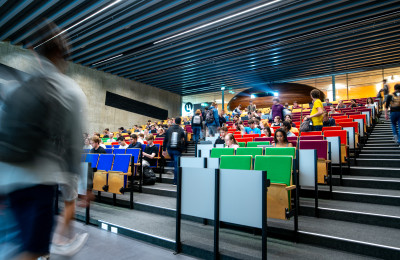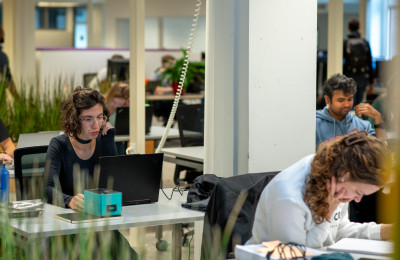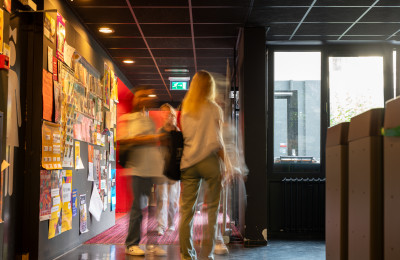Growth in intake of international bachelor's students stops
Topical

Contact

This year saw fewer international students start their Bachelor's degree programmes at Dutch universities than last year. However, due to a mild increase in enrolments in Master's programmes, the international intake as a whole remained stable. This became clear from preliminary enrolment numbers from Dutch universities. One possible explanation is that universities are focusing less on international recruitment, and have offered more information on the shortage in student housing. Jouke de Vries, UNL Deputy President: "These numbers show that the growth in international intake at universities has stopped. Bachelor's programmes actually saw fewer new international students enrol this year. As such, we urge the government not to take any radical measures that would damage the quality of our education and research."
Contact

De Vries: "Science is, by its very nature, international, so we must foster the international nature of our universities. Moreover, due to enormous shortages on the labour market, society needs international students who continue to work in the Netherlands after they graduate. At the same time, the universities want more control over the intake, so that the sector can continue to fulfil its role in society. That is why, since 2018, we have been asking for tools with which universities can control the intake of international students at a degree programme level. We would like to continue discussions with the government about this."
Compared with the previous academic year, 220 fewer international students started a Bachelor's programme at a university this year. The number of Dutch first-year Bachelor's students has also decreased, so the total intake in Bachelor's programmes has decreased by about 900 students. The number of international Master's students that had not previously studied at a Dutch university also decreased slightly compared to the previous year. When compared to the 2021-2022 academic year, that is a decrease of more than 1,700 students. The number of international students starting a Master's degree programme did increase by 550 students. This means that the increase in international intake in Master's programmes consists largely of students who were already studying at Dutch universities.
In total, 340,700 students are registered at Dutch universities – almost 700 students more than the last academic year.
Disclaimer and note to editors: The numbers announced today are preliminary numbers based on an aggregated extract from the Registry of Education Participants (Register Onderwijsdeelnemers, ROD), provided by the Ministry of Education, Culture and Science and the Education Executive Agency (DUO). The aggregated data has been checked by the universities and processed by UNL. The definitive figures for the current academic year will become available in the first quarter of 2024 upon release of the 1cijferHO file, after which the UNL will publish them on the website. The Bachelor’s intake is defined as the number of students who were not previously enrolled in a Bachelor’s or Master’s programme at a Dutch university. The Master’s intake is based on the number of students who enrolled in a university Master’s programme for the first time. The growth of the total number of registered students can deviate from the intake trend, as a result of changing outflow, meaning the number of graduates.


